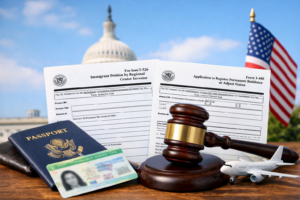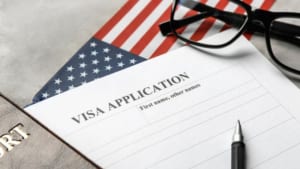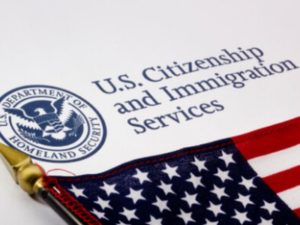Due to significant travel and movement restrictions caused by the COVID-19 pandemic, Lawful Permanent Residents (“LPR”’) have found themselves stranded abroad and thus unable to travel to the United States despite not having the intention of abandoning their LPR status. All permanent residents receive an identification called a Form I-551 but colloquially known as a “green card”. A green card serves as an immigrant visa if the LPR has been outside the United States for less than one year. If the LPR has been outside the United States for more than one year, there is a presumption that the LPR has abandoned his or her immigrant status and his or her green card may no longer be considered valid for entry into the United States.
While the green card’s expiration date may still be valid and the LPR may be able to board the plane despite remaining outside the United States for more than one year, an LPR’s admission to the United States will be determined by an interviewing U.S. Customs and Border Protection Agency (“CBP”) officer upon arrival at the Port of Entry (“POE”). An LPR who is concerned about having issues with CBP at an air, land or sea POE because of a one year or longer absence from the United States should consider filing an application for an SB-1 Returning Resident Visa at the nearest U.S. Embassy or Consulate. An SB-1 Returning Resident Visa is issued to an LPR who has remained outside the United States for more than one year and his or her absence is considered “protracted beyond their control.” Examples of an LPR’s protracted stay outside the United States may include medical emergencies, important family and financial issues, and most recently, COVID-19 travel and movement restrictions preventing the LPR from being able to return to the United States.
An LPR who is currently in Asia and is seeking an SB-1 Returning Resident Visa on the basis of the COVID-19 pandemic and is encouraged to contact us at info@enterlinepartners.com and speak with a U.S. immigration attorney based in Ho Chi Minh City, Manila and Taipei. Our immigration attorneys have over three decades of experience assisting clients at the U.S. Consulates thorough Asia.
ENTERLINE & PARTNERS CONSULTING
Ho Chi Minh City, Vietnam Office
Suite 601, 6th Floor, Saigon Tower
29 Le Duan Street
Ben Nghe Ward, District 1
Ho Chi Minh City, Vietnam
Tel: +84 933 301 488
Email: info@enterlinepartners.com
Facebook: Enterline & Partners – Dịch vụ Thị thực và Định cư Hoa Kỳ
Website: http://enterlinepartners.com
Manila, Philippines Office
Unit 2507 Cityland 10 Tower 1
156 H.V. Dela Costa Street
Makati City, Philippines 1209
Tel: +632 5310 1491
Email: info@enterlinepartners.com
Facebook: Enterline and Partners Philippines
Website: https://enterlinepartners.com/language/en/welcome/
Copyright 2020. This article is for information purposes only and does not constitute legal advice. This article may be changed with or without notice. The opinions expressed in this article are those of Enterline and Partners only.




